ABOUT LSA
Every year, the LSA recognizes great achievements in the field of Law and Society. Each award has a Prize Committee that reviews nominations and selects winners. An LSA membership is required to submit an awards nomination. Nominations for 2025 awards are closed.
PRIZE
Harry J. Kalven, Jr. Prize
The Harry J. Kalven, Jr. Prize is awarded annually (biennially prior to 1999) for “empirical scholarship that has contributed most effectively to the advancement of research in law and society.”
Nominations are open to all forms of law and society scholarship, and from any country of origin, although copies submitted to the committee must be in English.
It is not a book award, nor is it a career achievement award, but is given in recognition of a body of scholarly work, including some portion of work having been completed within the past few years. Self-nominations are accepted.
The award carries a cash prize of $500.
Current Winners
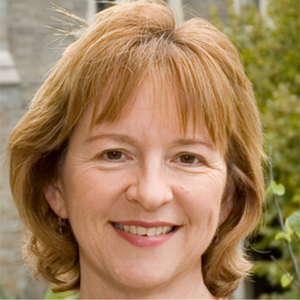
Valerie P. Hans – Cornell University
Valerie P. Hans is the Charles F. Rechlin Professor of Law at Cornell Law School. From her iconic early work on the American jury with Neil Vidmar to her ongoing participant observation, multi-method research on the emergence of juries in Argentina, Professor Hans has significantly advanced our understanding of lay participation in legal decision-making across the globe. Her work exemplifies the Association’s aspiration to study legal developments as they emerge and transform, and are transformed by, the institutional and cultural contexts in which they emerge.
To provide one recent and significant example, Hans and her collaborators are studying the new Argentine jury in real time, tracing the fits and starts and revealing important changes accompanying the introduction of jury trials. For example, the new jury systems have required shifts in legal procedures from the traditional mostly paper-and-pencil civil law tradition to the public, oral jury proceedings, as well as a need to train lawyers to operate in these new proceedings. This “modest” legal innovation has turned out to bring with it a host of dramatic changes in the legal system. As their research has shown, despite imposing new demands on participants in the legal system, jury trials have been well-received by jurors, judges, and attorneys. Professor Hans deserves the credit for ensuring that we did not miss the opportunity to capture an important piece of legal evolution in real time.
Enormously productive over a long and continuing scholarly career, Professor Hans has contributed to the advancement of research in law and society, not only through her many influential books and articles, but also through the support that she has provided to other law and society scholars, as her Argentine research reflects. A co-organizer of one of the Association’s most successful Collaborative Research Networks, on Lay Participation in Legal Decision-Making, she has inspired and collaborated with scholars from a host of legal systems and developed new methods for the empirical study of legal institutions. Hans’ work has focused on lay participation and legal transplants, but her collaborative methods could be applied to other areas of empirical legal research, especially in the Global South.
For these and other reasons, Valerie Hans is truly deserving of the Law and Society Association’s Harry Kalven, Jr. Award for empirical scholarship that has contributed most effectively to the advancement of research in law and society.

Robert L. Nelson – American Bar Foundation, Northwestern University
Robert Nelson holds the MacCrate Research Chair in the Legal Profession at the American Bar Foundation and has been a Professor of Sociology at Northwestern University for over 40 years. Professor Nelson’s body of work exemplifies the intellectual rigor, scholarly innovation, and empirical depth that this prestigious prize seeks to recognize.
Whether it is the absence of lawyers in certain areas of legal need (due to student loan debt, predatory policing of professional boundaries, or low pay and prestige), raced and gendered barriers in lawyers’ career paths, how lawyers wield influence lobbying Congress, the professional dynamics that produce inequalities in legal services, the social structure of the bar itself, the professional role of lawyers in Fortune 500 companies, or the internal dynamics of large law firms, Bob’s research is the place any researcher must begin the inquiry and will often end the inquiry.
The focal point of Bob’s career over the several decades has been the 25-year longitudinal study of the legal profession, entitled “After the JD.” By analyzing the careers of lawyers, it examines and illuminates fundamental theoretical and sociological questions concerning the relationship between structure and agency in a particular field, the highly stratified occupational system of American law. This is a masterwork in law and society scholarship, collecting and analyzing unprecedented quantitative and qualitative data on the career trajectories of legal professionals. Based on data from a nationally representative cohort of lawyers (including a crucial oversample of attorneys of color) who passed the Bar in the year 2000, the book and published articles report analyses of over 10,000 survey responses from 2003, 2007, 2012, and web data from 2019. The work is enriched through a mixed methods approach, featuring in-depth interviews with over 200 lawyers at those three points in time. The scope and ambition of this work are a jaw dropping tour de force, as it skillfully presents an almost unparalleled– and indeed necessary — view of how modern legal careers are forged.
In addition to his sustained work specifically on the legal profession, Bob’s work has also focused on inequality at work and the legal options available to those facing barriers to opportunity. Although these issues might seem unrelated to the study of the legal profession, in both instances, Bob critically turns his lens to the role of courts in perpetuating workplace inequality. In his work, Legalizing Gender Inequality, Bob shows that male-female earnings differentials cannot be explained adequately by market forces, principles of efficiency, or society-wide sexism. Rather, he explains gender pay differentials by showing how employing organizations tend to disadvantage holders of predominantly female jobs by denying them power in organizational politics and reproducing male cultural advantages. By uncritically accepting the market explanation for wage disparity, the courts tend to legitimate and legalize a crucial dimension of gender inequality.
What sets Bob’s scholarship apart is not only his dedication to empirical rigor but also his ability to bridge traditional academic boundaries. His work integrates sociological, legal, and economic frameworks, encouraging scholars to examine law as dynamically intertwined with larger social forces. Whether through analyzing labor market changes, disparities in access to justice, or the organizational shifts in legal institutions, his scholarship consistently challenges conventional paradigms to introduce bold, relational frameworks.
Past Winners
Year
Individual(s)
Affiliation
Nominations Require:
- A letter of support from the nominator
- The candidate’s curriculum vitae
- 1 of 2 additional letters of support will be accepted, but are not required.
All supporting documents must be submitted in English and be in .DOC, .RTF, or .PDF format.
PRIZE
Herbert Jacob Book Prize
The Herbert Jacob Book Prize annual competition is open to books from all fields of, and approaches to, law and society scholarship published in the previous year (excluding works of legal history, which are considered for the Hurst Prize).
Textbooks, casebooks, and edited collections are not eligible for the award, but monographs will be considered. Nominations are accepted from all aspects of the field and any country of origin and may include first books of young scholars and books that are capstones of long careers in law and society research and publication. Self nominations are accepted. Nominators must be current LSA members.
The responsibility of ensuring that a work is submitted for the most appropriate book prize rests with the nominator. As a rule of thumb, books that have a significant historical focus should be directed to the Hurst Prize, while other works of socio-legal scholarship should be directed to the Jacob Prize. A book submitted for both prizes may end up being considered for neither.
The award carries a cash prize of $500.
Current Winners

Liz Chiarello – Washington University in St. Louis
Policing Patients: Treatment and Surveillance on the Frontlines of the Opioid Crisis (Princeton University Press, 2024)
Policing Patients: Treatment and Surveillance on the Frontlines of the Opioid Crisis examines how healthcare and policing intersect on the frontlines of the opioid crisis across the United States. Importantly, Professor Chiarello adds the perspectives of pharmacists to the ongoing conversation about the opioid crisis, and she focuses on prescription drug monitoring programs as a surveillance mechanism that connects healthcare and law enforcement professionals. By that she succinctly exposes deeply rooted and broader issues within the American (criminal) legal system that tries to solve social issues through law enforcement. Analyzing over 300 interviews spanning eight states and more than three professions, Chiarello points out the harms of allowing
technology to blur the lines between law enforcement and healthcare and critiques the current policy focus on treatment as being too narrow and too late. Ultimately, her work suggests that the solution lies in a broad and comprehensive approach to policy and practice.
Honorable Mention
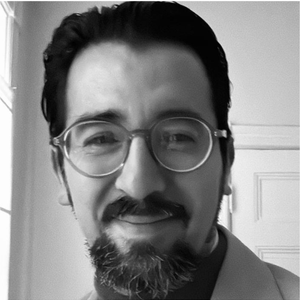
Iván Darío Vargas-Roncancio – York University
Law, Humans and Plants in the Andes-Amazon: The Lawness of Life (Routledge, 2024)
Law, Humans and Plants in the Andes-Amazon: The Lawness of Life challenges traditional Western legal frameworks by exploring how plants and indigenous knowledge reshape our understanding of law. Professor Vargas Roncancio argues that legal systems exclusively focused on human perspectives are inadequate for addressing current socio-ecological crises, advocating instead for a post-anthropocentric approach that recognizes the interactions between humans and other-than-human beings as fundamental to legal institutions and decision-making. Building on Earth Law, ecological law, and posthumanism scholarship, the book critiques both Rights of Nature approaches and the ontological and methodological foundations of Western law. Vargas Roncancio also uses rich ethnographic data and innovative legal theory to reconceptualize law from the perspective of the ecological systems it regulates, combining Indigenous legal traditions with multispecies ethnography to advance an epistemologically plural Earth jurisprudence that he argues can better confront our planet’s environmental challenges.
Past Winners
Year
Individual(s)
Affiliation
Book
Nominations Require:
- Nominators must be current LSA members.
- To stress the restriction stated above, books eligible for the Jacob Prize may be from any field of socio-legal scholarship except history; books with a significant historical focus should be submitted instead to the Association’s Hurst Prize.
- Only one single-authored work by the same author in a given year will be accepted. Two works by the same author will be accepted if one or both works are jointly authored.
- Books must be published in English, or be English translations of original works.
- Books submitted must have a copyright date (regardless of actual publication dates) during the calendar year prior to the award ceremony.
- Page proofs may be sent if the book will be published soon with the proper year’s date.
- Self-nominations are accepted.
- Copies of the book are required to be sent directly to the Herbert Jacob Book Prize Committee Members. We will reach out to the publishers of the nominated books and provide them with the addresses for the prize committees directly.
- OPTIONAL – A letter of support from the nominator, including a synopsis of the book.
All supporting documents must be submitted in English and be in .DOC, .RTF, or .PDF format.
PRIZE
James Willard Hurst Book Prize
The James Willard Hurst Prize is awarded annually (biennially prior to 2002) for the best work in socio-legal history published in the previous year. The field of socio-legal history is broadly defined to include the history of interrelationships between law and social, economic, and political change; the history of functions and impact of legal agencies, legislative and administrative as well as judicial; the social history of the legal profession; and similar topics. Self-nominations are accepted. Nominators must be current LSA members.
Textbooks, casebooks, and edited collections are not eligible for the award, but monographs will be considered. The Association seeks studies in legal history that explore the relationship between law and society or illuminate the use, function, and cultural meaning of law and society. The Association discourages submission of purely doctrinal studies in the evolution of appellate case law.
The responsibility of ensuring that a work is submitted for the most appropriate book prize rests with the nominator. As a rule of thumb, books that have a significant historical focus should be directed to the Hurst Prize, while other works of socio-legal scholarship should be directed to the Jacob Prize. A book submitted for both prizes may end up being considered for neither.
The award carries a cash prize of $500.
Current Winner

Allison Powers – University of Wisconsin-Madison
Arbitrating Empire: United States Expansion and the Transformation of International Law (Oxford University Press, 2024)
The Hurst Awards Committee has selected Allison Power’s book Arbitrating Empire: United States Expansion and the Transformation of International Law as the recipient of the 2025 prize. The book is a tour de force, drawing extensively on archival research to provide a richly textured account of the United States role in transforming international law. The committee was impressed by the book’s nuance and rigorous historical detail, tracing how the United States has wielded authority not only to shape outcomes in international disputes through formal law and the use of international tribunals, but also at local economic levels such as Cuban sugar plantations, the locks and stops of the Panama Canal, the Texas cotton fields, and Arizona copper mines.
The book is an excellent achievement that never loses sight of the consequences of the U.S. government’s political and economic influence in international law, disputes, and economic violence. It is a work that thoughtfully narrates how “ordinary people” from throughout the world have attempted to use international law to advance the search for justice. The manuscript is compellingly written, and thoroughly researched. It resituates how American law and power have been framed during the past two centuries and the communities rendered invisible. It is an excellent contribution to law and society scholarship.
Past Winners
Year
Individual(s)
Affiliation
Book
Nominations Require:
- Nominators must be current LSA members.
- Books must be published in English, or be English translations of original works.
- Books submitted must have a copyright date (regardless of actual publication dates) during the calendar year prior to the award ceremony.
- Only one single-authored work by the same author in a given year will be accepted. Two works by the same author will be accepted if one or both works are jointly authored.
- Self-nominations are accepted.
- Copies of the book are required to be sent directly to the J. Willard Hurst Book Prize Committee Members. We will reach out to the publishers of the nominated books and provide them with the addresses for the prize committees directly.
- Page proofs may be sent if the book will be published soon with the proper year’s date.
- OPTIONAL – A letter of support from the nominator, including a synopsis of the book.
All supporting documents must be submitted in English and be in .DOC, .RTF, or .PDF format.
PRIZE
Article Prize
The Law and Society Association Article Prize recognizes exceptional scholarship in socio-legal studies for a journal article or chapter in an edited book. Articles may be published in any scholarly journal, including socio-legal journals, journals in other disciplines, and law reviews. Self-nominations are accepted.
The competition is open to all forms of law and society scholarship, to authors at any stage of their careers, and to authors from any country of origin.
The award carries a cash prize of $500.
Current Winners
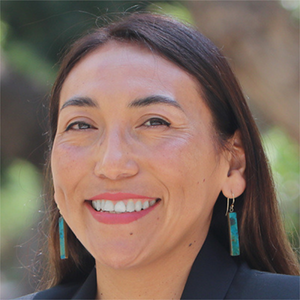
Mirian G. Martinez-Aranda – University of California, Irvine
Precarious Legal Patchworking: Detained Immigrants’ Access to Justice. Social Problems, 72(1), 191–206
We are delighted to award the Article Prize to Mirian G. Martinez-Aranda of UC-Irvine for the paper, “Precarious Legal Patchworking: Detained Immigrants’ Access to Justice.” Published in Social Problems, this paper draws on extensive interview research with over 50 formerly detained undocumented immigrants to tell rich and detailed stories about the obstacles they faced in accessing justice while in detention, and the innovation they showed by cobbling together what legal resources they could. Martinez-Aranda calls this strategy “precarious legal patchworking (PLP),” extending existing research on immigrant survival strategies into carceral contexts. While this patchworking is an important expression of agency and makes a difference in some cases, its results are uneven and unreliable. This methodologically rigorous paper speaks directly to one of our era’s most defining questions of in/justice, painting a finely textured picture of the ways Martinez-Aranda’s research participants experienced detention and fought against it. And its theoretical contribution of PLP is fully realized and expansive, immediately usable by researchers working in other subfields and empirical contexts. This is exactly the kind of outcome the Article Prize hopes to inspire.
Honorable Mention
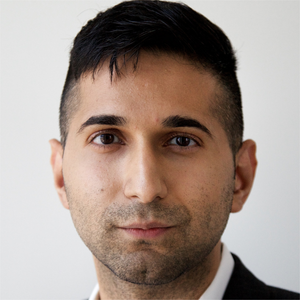
Yuvraj Joshi – Brooklyn Law School
Racial Time. The University of Chicago Law Review, 90(6)
This innovative paper synthesizes scholarship from political theory, African American studies, sociology, and transitional justice studies to develop an analytical framework for studying how sociolegal constructions of time work to impose or resist racial domination. Published in the University of Chicago Law Review, the paper explores experiential, perceptual, and structural dimensions of time on scales ranging from the hourly and the daily to the historical. Through close readings of Supreme Court opinions, Black activist writing, and more, the paper especially highlights how “justice measures” are always constructed as “too early” or “too late” in “hegemonic constructions of time.” Its conceptual scaffolding will prove resonant and useful for scholars across the breadth of sociolegal studies.
Past Winners
Year
Individual(s)
Affiliation
Article
Nominations Require:
- Nominators must be current LSA members.
- Article copies submitted to the committee must be in English.
- Only one single-authored work by the same author in a given year will be accepted. Two works by the same author will be accepted if one or both works are jointly authored.
- The article must have a publication date within the two calendar years prior to the awards ceremony. Articles will only be considered once within the two-year period of eligibility.
- The full article, including full bibliographic citation.
- OPTIONAL – A letter of support from the nominator, including an abstract of the article.
All supporting documents must be submitted in English and be in .DOC, .RTF, or .PDF format.
PRIZE
John Hope Franklin Prize
The John Hope Franklin Prize is awarded annually by the Law and Society Association to recognize exceptional scholarship in the field of Race, Racism and the Law.
The Franklin Prize is awarded for an article published in the two calendar years prior to the award year. The competition is open to all forms of law and society scholarship, to authors at any stage of their careers, and to authors from any country of origin. Articles may be published in any scholarly journal, including socio-legal journals, journals in other disciplines, and law reviews, or may be a chapter in a book volume. Co-authored articles, and self-nominations, may be submitted for consideration.
While there is no limit on the number of articles one may nominate, an article may not be considered for the John Hope Franklin Prize and another LSA award. The decision in determining whether an article should be submitted for consideration for the Franklin Prize, rather than another LSA award, rests with the article’s nominator in consultation with the author.
The award carries a cash prize of $500.
Current Winners
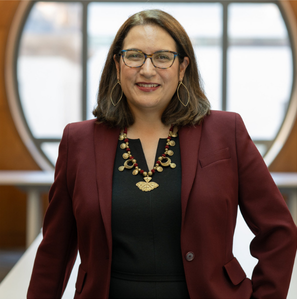
Jasmine E. Harris – University of Pennsylvania
The Political Economy of Conservatorship. UCLA Law Review, 71(5), 1364-1482
Jasmine E. Harris’s “The Political Economy of Conservatorship,” published in the UCLA Law Review, reinterprets conservatorship as a tool of racial and economic subordination. Harris weaves legal history, disability theory, and racial critique into an incisive analysis of how disability law has been used to extract labor and property from Black and Indigenous communities. By connecting conservatorship’s historical deployment to its contemporary operation, Harris exposes the system’s deep-seated structural harm. Her article exemplifies socio-legal scholarship at its finest and proposes an abolitionist framework with broad implications for race, disability, and legal reform.
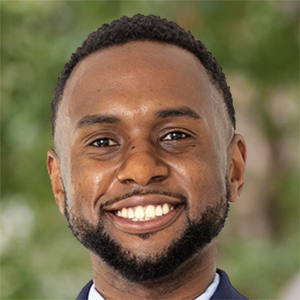
Daniel S. Harawa – New York University
Coloring in the Fourth Amendment. Harvard Law Review, 137(6), 1533-1582
Daniel Harawa’s “Coloring in the Fourth Amendment,” published in the Harvard Law Review, delivers a powerful and incisive challenge to the colorblind assumptions embedded in Fourth Amendment jurisprudence. By exposing how race-neutral legal standards mask racial subordination in policing, Harawa articulates a doctrinal and normative argument for a race-conscious reasonable person standard. Grounded in constitutional theory and racial justice advocacy, this article exemplifies rigorous scholarship and has the potential to reshape legal understandings of policing, seizures, and race.
Honorable Mention
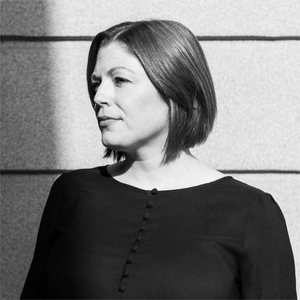
Giuliana Perrone – University of California, Santa Barbara
Rehearsals for Reparations. The Russell Sage Foundation Journal of the Social Sciences, 10(2), 132-150
Giuliana Perrone’s “Rehearsals for Reparations,” published in the Russell Sage Foundation Journal of the Social Sciences, uncovers a neglected archive of postbellum litigation in which freed people sued to enforce testamentary bequests from former enslavers. Recasting these legal actions as early reparations claims, Perrone reveals the moral and legal logic through which formerly enslaved individuals asserted their rights to property, land, and justice. The article is an outstanding contribution to the history of race and the law and offers a new frame for understanding reparations in American legal history.
Past Winners
Year
Individual(s)
Affiliation
Publication
Nominations Require:
- Nominators must be current LSA members.
- Article copies submitted to the committee must be in English.
- The article must have a publication date within the two calendar years prior to the awards ceremony. Articles will be considered only once during the two-year period of eligibility.
- Only one single-authored work by the same author in a given year will be accepted. Two works by the same author will be accepted if one or both works are jointly authored.
- The full article, including full bibliographic citation.
- OPTIONAL – A letter of support from the nominator, including an abstract of the article.
All supporting documents must be submitted in English and be in .DOC, .RTF, or .PDF format.
PRIZE
Dissertation Prize
The LSA Dissertation Prize is awarded annually to a dissertation written within 12 months of the prize year that best represents outstanding law and society scholarship.
The award carries a cash prize of $500.
Current Winners
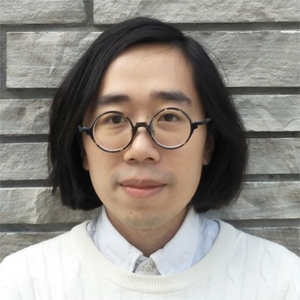
Du Fei – University of Oklahoma
Local Women, Global Histories? Gendering Economic Life, Law, and Islam in Early Modern Transregional India
Du Fei, Assistant Professor at the University of Oklahoma, who earned his PhD from Cornell University, has been selected as the winner of this year’s Dissertation Prize. His dissertation, “Local Women, Global Histories? Gendering Economic Life, Law, and Islam in Early Modern Transregional India,” challenges gendered constructions of Islamic law and reveals how gender-insensitive narratives have shaped dominant histories of trade and travel in global Islam.
Historians have long traced the movements of merchants, colonizers, and legal professionals across transregional India, often casting men as global actors and non-European women as local, domestic subjects. But what was it precisely that made some of these histories “global” and others “local”? What roles did women actually play in the economic life of the time, and how did they engage with legal systems, while navigating financial and social networks? Drawing on extraordinarily rich archival research and sharp theoretical analysis, Fei’s dissertation uncovers a fascinating inversion of mainstream assumptions about the histories of gender in Islam.
While Muslim women in transregional India are often portrayed as passive or economically marginalized, Fei shows that some acted as strategic negotiators—engaging with jurists, judges, and male kin to assert claims through Islamic law on property and inheritance. Rather than being confined to the private sphere, these women regularly negotiated with male kin, jurists, judges, and officials in multiple courts. Taking readers across the lands and seas of South Asia, the Middle East, and Southeast Asia, Fei effectively constructs a new archive for the legal history of South Asia, drawing on sources in Persian, Arabic, English, and Dutch.
By positioning the household as a critical site of economic activity, the dissertation also unsettles simplistic accounts of patriarchy and offers a major methodological and substantive contribution to the economic and legal history of global early modernity. It advances scholarship on legal pluralism by demonstrating how women navigated overlapping legal traditions as they engaged in debates among Muslim jurists, colonial officials, and Orientalists. In short, Fei’s dissertation represents the epitome of law and society scholarship.
The committee unanimously praised the exceptional reach of the dissertation, spanning gender studies, legal history, and Islamic studies, and its potential to mark a leap forward in socio-legal scholarship that employs historical analysis. Beautifully written and meticulously researched, the dissertation lays the groundwork for an important interdisciplinary intervention. In a period marked by opportunistic originalism, it offers socio-legal scholars a compelling example of how careful archival rereading can serve as a powerful counterpoint in legal argumentation about global histories.
Honorable Mention
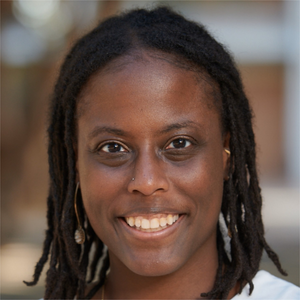
Faith M. Deckard – University of California, Los Angeles
Bonded: Bail Agents, Families, and the Management of Risk
Faith M. Deckard, Assistant Professor at UCLA, who earned her PhD from the University of Texas at Austin, has been selected to receive an honorable mention for this year’s Dissertation Prize. Deckard’s dissertation, “Bonded: Bail Agents, Families, and the Management of Risk,” draws on ethnography and in-depth interviews to examine how defendants, their family members, and bail agents understand and navigate their participation in the commercial bail system.
Exploring scenes from bail agency offices and conversations with family members and defendants, this study enlivens our understanding of access to bail, inequality, and more broadly, the meaning of innocence pre-trial. It builds on emerging scholarship that shifts the analytic focus to bail agents—understudied actors in the landscape of commercial bail. In so doing, the dissertation makes a significant contribution to understanding the bail system’s broken promises. More concretely, proponents of existing pretrial systems in the United States claim that it strikes a critical balance between values of liberty and public safety, providing a measure of protection against future crime while offering defendants the opportunity remain “free” while awaiting trial. Yet Deckard shows how commercial bail subverts these aims: bail agents evaluate financial risk rather than social harm, while the system perversely favors defendants with prior criminal records as more “credible” clients. One poignant finding shows how bail agents “responsibilize” family members through surveillance practices that include data collection, and through these practices, contribute to an economy of care where the families of defendants, in particular racialized women, remain “bonded.”
The committee found particularly compelling Deckard’s success in interviewing family members of defendants—an often hard-to-reach research goal—and the strength of the study’s multi-pronged methodological approach to understanding the social life of bail. By tracing the emotional labor involved in family supervision and highlighting how bail binds together defendants, agents, and families in ongoing cycles of criminalization and economic disadvantage, the dissertation adds an important, and disturbing, layer to our understanding of systemic inequality.
This work makes a meaningful contribution to the field of law and society, significantly advancing understandings of economic instability, racial inequality, and the criminal legal system.
Past Winners
Year
Individual(s)
Affiliation
Paper
Nominations Require:
- Nominators must be current LSA members
- The dissertation must have been filed with the institution of higher education (U.S or non-U.S) during the calendar year prior to the award ceremony.
- The full dissertation in English; translations from other languages into English are welcome.
- An abstract of the dissertation, also in English.
- OPTIONAL – One letter of nomination from a regular member of the Law and Society Association.
- No self-nominations or student-member nominations are accepted.
All supporting documents must be submitted in English and be in .DOC, .RTF, or .PDF format.
PRIZE
Graduate Student Paper Prize
The LSA Graduate Student Paper Prizes are awarded annually to a graduate student whose nominated papers, written within 18 months of the prize year, best represent outstanding law and society research.
The award carries a cash prize of $500.
Current Winners

Iolanthe Brooks – Northwestern University
Shuffling Within the System: The Pervasive Uncertainty of Prison Transfers
Iolanthe Brooks has been selected as a co-winner of this year’s graduate paper prize. Brooks’ terrific paper explores how carceral state institutions utilize movement as a form of punishment for incarcerated individuals. Brooks labels this novel concept “within-system shuffling,” wherein state carceral institutions transfer inmates to discipline and undermine those individuals that administrators feel cause trouble. Through a vibrant and breathtaking qualitative journey, Brooks’ work brings this concept to life. Ultimately, Brooks finds that within the system, shuffling is a tool that helps reinforce uncertainty and power for incarcerated individuals. This turns out to be the real gem of the paper, as it forces us to think about how movement itself can be viewed as an extension of governing power and compels us to consider how that power can be felt both individually and collectively.
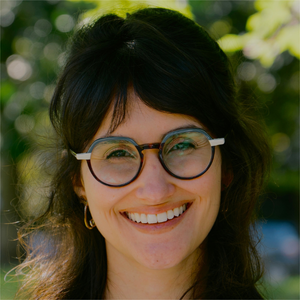
Roberta S. Pamplona – University of Toronto
Reframing Feminist Ideas, Challenging State Incorporation: Activism Against Violence and the Feminicidio Law in Brazil
Roberta Pamplona has been selected as the co-winner of this year’s graduate paper prize. Pamplona delivers an outstanding entry that examines what happens when the state co-opts feminist ideals into the criminal code. While it may be tempting to think that state co-optation would automatically lead to negative consequences, Pamplona’s work uses the Brazilian context to show that reality is much more complicated. In particular, Pamplona demonstrates how feminists’ continual advocacy and activism have helped to extend the “co-opted” concept feminicídio beyond the ideals supported by the state. In doing so, this work is a bright spot in a political landscape where people are constantly searching for answers and seeking hope on how to move forward. The brilliance of Pamplona’s work is that it illuminates two pathways forward: one in which organizers and activists allow the state to restrict and co-opt their concepts, and another in which activism can help expand and change state incorporation. The choice is, of course, ours.
Past Winners
Year
Individual(s)
Affiliation
Paper
Nominations Require:
- Only non-student members of the Law and Society Association may make nominations for the Graduate Student Award. No self-nominations are accepted.
- The paper must have been submitted within the two calendar years prior to the awards ceremony by a matriculated graduate or graduate professional student at any U.S. or non-U.S. institution of higher education. Papers originally written for coursework within this same time period and subsequently published are still eligible for nomination. Papers are only considered once within the two-year period of eligibility.
- No instructor may nominate more than two student papers for the award.
- Only one single-authored work by the same author in a given year will be accepted. Two works by the same author will be accepted if one or both works are jointly authored.
- In submitting the paper for award consideration, the nominator must include the date and title of the course for which the paper was written.
- Submissions must be in English; translations from other languages into English are welcome.
- The paper must be double-spaced; may not exceed 18,000 words in length, including notes and references; and must be in a minimum of 12 point font.
- OPTIONAL – Nominators can include a letter of support describing the merits of the student paper they are submitting.
All supporting documents must be submitted in English and be in .DOC, .RTF, or .PDF format.
PRIZE
Undergraduate Student Paper Prize
The LSA Undergraduate Student Paper Prizes are awarded annually to an undergraduate student whose nominated papers, written within 18 months of the prize year, best represent outstanding law and society research.
The award carries a cash prize of $500.
Current Winners

Celia Parry – Pomona College
Strange Bedfellows: Guardians for Fetuses and Future Generations
Celia Parry has been selected as co-winner of this year’s undergraduate paper prize. Parry’s impressive paper explores the use of legal guardianship in anti-abortion cases to show how climate activists can learn from and adopt similar logics. Building on this, Parry identifies three key lessons climate litigators can adopt from the fetal guardianship context: 1) flexible civil procedure codes and constructive processes can lead to success, 2) below-the-radar advocacy is preferential, and 3) the reopening of debates around legal personhood in light of Dobbs. Keen to point out flaws, Parry notes that one potential drawback of their approach is that this strategy risks entrenching legal guardianship in the anti-abortion context, which would be an unfavorable outcome. Nevertheless, through sharp and insightful analysis, Parry persuasively makes the case that these avenues are meaningful starting points for future generations seeking to protect the climate.

Avani Singh – University of California, Berkeley
Judicial Insights: Unraveling Mental Health Decisions in Collaborative vs. Traditional Courts
Avani Singh has been selected as co-winner of this year’s undergraduate paper prize. Singh’s dynamic paper is a comparative analysis that explores how judges in traditional courts and mental health courts understand their work. Conducting an array of impressive interviews, Singh finds that judges’ problem-solving models impact their perception of effectiveness in the court system. Particularly, Singh finds that the medical model is increasingly perceived as more effective in handling mental health issues, but effective judicial training on the use of the medical model still lags behind. Ultimately, Singh’s work forces us to grapple with why criminal courts and law are seen as the best venue to deal with mental illness and pushes us to think more deeply about the relationship between power, law, violence, and mental illness.
Past Winners
Year
Individual(s)
Affiliation
Paper
Nominations Require:
- Only regular LSA members and graduate student LSA members who have received the nominated papers while working as lecturers or teaching assistants may nominate papers for the Undergraduate Student Award. No self-nominations are accepted.
- No instructor may nominate more than two student papers for the award.
- Only one single-authored work by the same author in a given year will be accepted. Two works by the same author will be accepted if one or both works are jointly authored.
- The paper must have been submitted within the two calendar years prior to the awards ceremony by a matriculated undergraduate student at any U.S. or non-U.S. institution of higher education including two-year community colleges. Papers originally written for a class within this same time period and subsequently published are still eligible. Papers are only considered once within the two-year period of eligibility.
- In submitting the paper for award consideration, the nominator must include the date and title of the course for which the paper was written.
- Submissions must be in English; translations from other languages into English are welcome.
- The paper must be double-spaced; may not exceed 18,000 words in length, including notes and references; and must be in a minimum of 12 point font.
- OPTIONAL – Nominators can include a letter of support describing the merits of the student paper they are submitting.
All supporting documents must be submitted in English and be in .DOC, .RTF, or .PDF format.
AWARD
Stan Wheeler Mentorship
The Stan Wheeler Mentorship is given each year to a member of the Law and Society community who is regarded by their peers and students as an outstanding mentor for graduate, professional, or undergraduate students working on issues of law and society. Self-nominations are accepted.
The award carries a cash prize of $500.
Current Winners
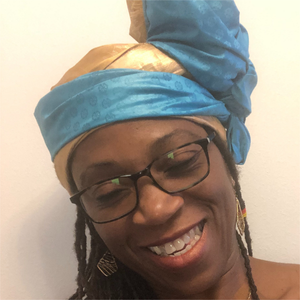
Veronica Fynn Bruey – Athabasca University
The life story of Dr. Veronica Fynn Bruey is inspiring in and of itself. A survivor of violence and trauma due to the Liberian Civil War, she has overcome innumerable odds to serve in her current capacity as Assistant Lecturer at the University of Alberta. Prior to teaching at the University of Alberta, she taught at Athabasca University in Alberta, Canada; the University of Cape Coast in Ghana, the University of London in the United Kingdom, and Flowers University in the United Kingdom, Germany, and Ghana, among other institutions. The breadth of her accomplishments in such an abbreviated time, and despite the obstacles placed in her way, is astonishing. As one of her recommenders put it, “[s]he holds six academic degrees from world-renowned institutions across four continents” and “has researched, taught, consulted and presented at conferences in over 25 countries.” Specifically, she holds a BSc in Zoology, with Honours, from the University of Ghana in Legon, Ghana; a B.A. in Psychology from the University of British Columbia in Vancouver, BC, Canada; a M.P.H. in Refugee Mental Health from the University of Nottingham in the Nottingham, United Kingdom; an LL.M. in Forced Migration Law from Osgoode Hall Law School in Toronto, ON, Canada; an LL.B., with Honours, in Public Law from the University of London in London, England; and a Ph.D. in Indigenous Law from The Australian National University in Canberra, ACT, Australia, plus at least 12 certifications in varying fields.
She has been a prolific scholar, publishing one full monograph, three more edited books, and two children’s books. Additionally, she has published 19 book chapters, 11 articles, 20 book reviews, 13 opinion-editorials and blog posts, and 5 reports. She is also a widely sought-after expert by media outlets, and she has given more than 125 talks, lectures, and panel talks across the entire globe. She is an Editorial Board member of several journals with an international scope, including the International Journal of Border and Migration Studies in Canada, Wollega University School of Law Journal in Ethiopia, University of Ibadan Faculty of Law Journal in Nigeria, and African Methodist Episcopal Uni Interdisciplinary Journal in Liberia. She also is the Founder and Editor-in-Chief of the Journal of Internal Displacement in Canada and was the Editor-in-Chief of the University of Cape Coast Law Journal in Ghana from 2018 to 2020 and the Senior Editor for International Law Journal of London in England from 2013 to 2017. She is a peer reviewer for many journals all over the world. She also has previously served as an abstract reviewer for CRN-11: Displaced Peoples for the annual conference for the Law and Society Association in the United States.
A member of the First Africa Law and Society Association, she has been honored with its Conference Award (USD $5,000). She also has received a tremendous number of awards and fellowships from other organizations. For instance, she has been the Af-Ox Visiting Fellow for the Africa Oxford Initiative, a Fellow for Brasenose College at Oxford University in England, a Fellow for the Refugee Studies Centre in the Department of International Development at Oxford University in England, and a Visiting Research Scholar and Fellow at the University of Washington-Seattle. Awards earned have included honors like the Pius Adesanmi Early Career Research Excellence Award from the Canadian Association of African Studies, the Distinguished Academic Early Career Award from the Confederation of Alberta Faculty Association, International Aluna of the Year/Alumni Award from The Australian National University, plus numerous other awards and research grants.
Moreover, she is an institution builder, creating spaces for dialogues, voices, and people for whom spaces have not previously or traditionally existed. This work began when she was just an undergraduate student and founded Africa Awareness, a student-driven initiative responsible for instituting the first and only African Studies Program at the University of British Columbia, in 2002. In 2018, she founded the Voice of West African Refugees (VOWAR) at the Buduburam Refugee Settlement in Ghana, and she is a Co-Founder and Executive Director of Tuki-Tumarankey, a non-profit focused on global displacement, migration, and development issues.
Her devotion to students is evident in both the number of students she has mentored and the praise they regularly give her. Her list of trainees/mentees for academic year 2023-2024 (which is part of her CV, another telling factor) is 49 students long, and they cut across the globe, hailing from Canada, Nigeria, Mexico, India, South Africa, Kenya, the United States, plus many more places. Her former student nominators describe her as a dedicated and inspiring mentor whose “thoughtful feedback, high standards, and dedicated engagement made a profound impact on [their] academic journey[s];” as a “humble” and “compassionate” instructor who has helped her students with problems ranging from academic ones to financial challenges; and as a person whose “approach to mentoring is guided by . . . empathy, resilience, and listening.” Students are moved by and transformed by the lessons she conveys through her lived experiences. Indeed, one nominator noted that she has a “remarkable ability to connect with students on a personal level while inspiring them to achieve academic and professional success.”
Remarkably, she began her deep work as a mentor at an incredibly early point of her career, at a time when many themselves still need serious mentoring. She continues her incredible work as a mentor despite the many burdens she endures, including the invisible service work she performs as a woman of color in academia.
Dr. Bruey’s intellectual guidance has been formative for her mentees, which includes her peers as well as students. One of her nominators shared how meaningful it has been for him to have a mentor and advisor—a woman of color—in which he can see himself. This current Ph.D. student of hers asserted: “As a person of colour, and first generation University student, I have not had a large support network to draw on when I had questions or concerns related to my studies. Dr. Fynn Bruey has been a reliable mentor and one of my strongest supporters, whether I needed guidance and support drafting funding applications, engaging with my doctoral supervisors, and selecting members for my advisory committee. She has provided valuable insights from her vast academic experience which have helped guide my burgeoning doctoral program.”
Most powerfully, one of her colleagues described the incredible impact she has on her non-minority peers, their own education about the experiences of others, and the approaches to teaching and mentoring in their academic work. This nominator stated:
“I note that the Stan Wheeler Mentorship Award is for mentorship of graduate, professional and undergraduate students. This does not encapsulate the entirety and complexity of the mentoring done by Indigenous, Black and other ethnic minority scholars. Indigenous, Black and ethnic minority scholars often take on the burden of explaining concepts and experiences of race, racialisation, racism, intersectionality and colonialism to academic colleagues (most often white colleagues). These explanations, that are grounded in theory, empirical data and Indigenous and Black scholars’ lived experiences slowly and incrementally make the academy a safer and more inclusive space, especially for students and early career scholars from marginalised backgrounds. This type of mentoring may be described as ‘mentoring-across’ or ‘mentoring-up’ because the mentee is often at the same level as or more senior than the mentor. It is a dangerous, laborious and often unrewarded form of mentoring because of the risk of being ignored, undermined or branded as ‘angry’ or ‘troublesome’ even by ostensibly supportive colleagues (see Reni Eddo-Lodge’s Why I No Longer Talk to White People About Race). Veronica is an Indigenous Liberian, former refugee, war survivor and three times migrant (to Ghana, Canada and Australia). I commenced my PhD in the field of refugee law as a white scholar with no lived experience of persecution, displacement, racism or the bureaucratic violence perpetrated within immigration systems. As a PhD student and later as an academic I have personally benefitted from Veronica’s mentoring on how to research, teach and undertake university service in a way that at the very least does not reproduce the discrimination and persecution that Indigenous, Black and ethnic minority students and academics face and, ideally, moves towards anti-racist and decolonial approaches to research, teaching and service. Veronica is persistent in raising issues of race and intersectionality (particularly race and gender) with students and colleagues both junior and senior to her in small group and larger settings. She does so in a way that encourages rather than shuts down discussion and is a mentor through her leadership style” (emphasis added).
Overall, this committee agrees with Dr. Veronica Fynn Bruey’s students that she is a superb example of the values that the Stan Wheeler Mentorship Award is designed to honor. We are thrilled to also recommended her for this award.

Herbert M. Kritzer – University of Minnesota
Professor Herbert Kritzer served as the Marvin J. Sonosky Professor of Law and Public Policy at the University of Minnesota until his retirement in May 2022. Previously, he had served as Professor of Political Science and Law at the University of Wisconsin Madison before he retired from that role in June 2007. At both institutions, he holds the honor of being an Emeritus Professor
Professor Emeritus Kritzer received his B.A. in sociology from Haverford College, magna cum laude, in 1969, and his Ph.D. in Political Science from the University of North Carolina-Chapel Hill in 1974. Throughout his academic career, he has served as a teacher and scholar at a variety of institutions, including Rice University, University College-London, the University of Wisconsin-Madison, William Mitchell College of Law, and the University of Minnesota. A prolific researcher and writer, he has published 12 books with entities such as Yale University Press, Stanford University Press, the University of Michigan Press, Cambridge University Press, and Oxford University Press, to name a few. He also has published more than 125 articles and essays in leading law reviews and in leading peer-reviewed journals, including Law & Social Inquiry, Law & Society Review, Judicature, Journal of Politics, Journal of Empirical Legal Studies, the Annual Review of Law and Social Science, William and Mary Law Review, and Texas Law Review, to name just a few. Additionally, he has authored more than 50 book chapters, reports, and book reviews. He has served as an Associate Editor for the Journal of Empirical Legal Studies, as a member of the Editorial Advisory Board for Palgrave Macmillan’s series on socio-legal studies, as a member of the International Advisory Board for the International Journal of Japanese Sociology, and as a reviewer for many peer-reviewed journals such as American Political Science Review, Modern Law Review, and Journal of Law and Courts.
The impact of his scholarly work extends beyond academia and into the courtroom and legal profession. He has served as a consultant in numerous types of litigation sand for numerous bar associations and businesses.
An active participant in the Law and Society Association, Professor Emeritus Kritzer has been honored with numerous accolades and awards from the organization, including the Harry J. Kalven Prize in 2022, the Legacy Award in 2019, and the Ronald Pipkin Service Award in 2015. Honors from other organizations include the President Award from the State Bar of Wisconsin, the Editor’s Choice Award from the American Library Association, the C. Herman Pritchett Award from the Law & Courts Section of the American Political Science Association, and numerous different research grants.
As a mentor, Professor Emeritus Kritzer is extraordinary. His nominators, both former students and junior colleagues, describe him as “a mentor’s mentor,” “a good listener,” a “mentor [with] . . . a unique gift” and “with a grounded humanity,” and a “community servant,” among many other praiseworthy monikers. His nominators spoke well of his deep compassion as well as the rigor with which he taught his courses; read and commented on their paper drafts; interrogated and improved the methods, particularly qualitatively methods, they employed in their research; and produced and published their scholarly works. They highlighted his enormous generosity and selflessness in mentoring them on his own initiative as well as his brilliance. The majority of former students described themselves as “green” graduate students who could not have thrived without Professor Emeritus Kritzer’s excellent skills in understanding his students and without his careful guidance, which “never made [them] feel inadequate.” They noted that, despite his criticisms and despite how hard he pushed them, they always knew “he was looking out for” them and that “his main goal was to see that [they] learned and succeeded by working hard and by doing so with complete integrity.”
For at least one former-student-turned-professor, Professor Emeritus Kritzer helped them find their footing in the Law and Society network, which became their professional, intellectual community and home.
Each one of his former students, now prominent scholar-professors in their own right now, noted that they turned to Professor Emeritus Kritzer for advice and assistance throughout their academic careers. One of these former students wrote:
After graduate school, I have turned to Bert more than any other person for help, advice, and counsel. Several times each year I turn to him with a methodology question that my local methodologists cannot answer. In the course of nearly every major writing project I turn to Bert at some point to think through a key issue. I have sought counsel from Bert on several career decisions. I turn to Bert because his methodological knowledge is vast, and because he approaches methodologies in a refreshingly pragmatic, non-doctrinaire way. I also turn to him because his advice is consistently wise and personally helpful.
For most, he even “continued to act as a mentor after he retired” and/or “took positions elsewhere.”
Professor Emeritus Kritzer also has clearly inspired his mentees to pass on his generosity and precision as they move on with their careers and with their own students. Given the great benefits of his mentorship on them, Professor Emeritus Kritzer’s former-students-turned-professors have sought to emulate his impactful approach to mentoring. For example, one noted: “I have served as the primary advisor for six Ph.D. students and Bert’s incredible mentorship was critical to providing me with the many skills that I needed to effectively guide these students through challenges of writing their dissertations and getting jobs.” Another proclaimed:
Today, with both my law and graduate students, I constantly push them to do their best, whether in the classroom or on research projects. But the type of prodding in which I engage is never mean-spirited or unnecessarily burdensome. I can be taxing on them, and I also can be very demanding, but my mentoring is premised on compassion and a pure desire to see my students succeed. These are the lessons that Bert taught me.
Perhaps, the biggest evidence of Professor Emeritus Kritzer’s effect as mentor role model is that one of his former students, Professor Charles Epps, who seeks to emulate his longtime mentor, was selected to receive the 2024 Stan Wheeler Mentorship Award.
Overall, the committee was impressed with the legacy of “a long line of professors, lawyers, government leaders, civil society activists, and other professionals who . . .trace their successes” back to Professor Emeritus Kritzer. The committee is pleased to recognize this legacy with the 2025 Wheeler Award.
Past Winners
Year
Individual(s)
Affiliation
Nominations Require:
- A letter of support from the nominator, describing the nominee’s mentoring skills and his/her record as a “member of the Law and Society community”.
- The candidate’s curriculum vitae.
- 2 – 4 additional letters of support from former students, colleagues, collaborators, or others who have experienced the nominee’s skills as a mentor.
All supporting documents must be submitted in English and be in .DOC, .RTF, or .PDF format.
AWARD
Ronald Pipkin Service Award
The Ronald Pipkin Service Award is awarded to the Law and Society Association member who has demonstrated sustained and extraordinary service to the Association. Forms of service that will be awarded should be independent of elected office and appointed roles, although those roles can be considered as part of a larger record.
The award carries a cash prize of $500.
Current Winners
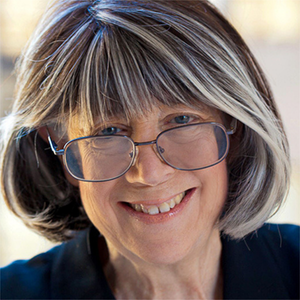
Susan S. Silbey – Massachusetts Institute of Technology
The Law and Society Association is honored to present the 2025 Ronald Pipkin Service Award to Professor Susan S. Silbey, whose decades of scholarship, leadership, and service have left a profound mark on the Association and the field of law and society.
Within the Law and Society Association, Professor Silbey has been an anchor for over 40 years. She has served on innumerable committees, on the Board of Trustees, as President, and as Editor of the Law and Society Review (1998–2001). In addition to serving as President and LSR Editor, Professor Silbey has held a long list of service roles within LSA. There are too many to name, but among them include: Treasurer, Trustee (class of 2020), and Chair of the Program Committee, Publications Committee, Nominations Committee, multiple prize committees, the Local Arrangements Committee, and the LSR Editor Search Committee. Her leadership in these roles helped shape not only the trajectory of sociolegal research but also the core structures and values of the community that surrounds it.
Reflecting on her time as editor, Silbey remarked: “Nothing has impressed me more than the consistency with which some people, despite compelling professional and personal demands, nonetheless manage to give their attention to others.” It is a sentiment that captures her own ethos: rigorous, unflinching, and profoundly generous.
Silbey is known throughout LSA as a valued mentor—one who demands rigor, precision, and clarity, but does so with generosity and warmth. Many of today’s leading law and society scholars, including multiple former LSA presidents, trace their intellectual roots to her mentorship. Her colleagues and former students describe her as someone who takes ideas seriously, who reads widely and deeply across disciplines, and who relishes engaging with others’ work as much as she does refining her own. She is fiercely committed to dialogue and discovery, and her mentoring relationships are marked by deep thought, critical feedback, and lasting intellectual bonds.
Few names are more synonymous with law and society scholarship than Professor Silbey’s. Her research has long examined the relationship between law and lived experiences. Her much-lauded 1998 book, The Common Place of Law (co-authored with Patricia Ewick), helped define the field of legal consciousness, offering a deeply sociological account of how people talk about, experience, and reproduce “hegemonic legality.” Silbey and Ewick argue that legal consciousness is not simply a matter of internal belief—it is a patterned way of enacting law and interacting with systems of power, made up of shared cultural schemas that shape how law is understood and navigated in everyday life.
In addition to her pathbreaking work on legal consciousness, Silbey has conducted pioneering research on law and science, compliance systems, and organizational regulation. She has studied how laboratories vary in their interpretations of environmental, health, and safety regulations; how engineers come to understand ethics and accountability as they move from college to the workplace; and how regulatory and audit systems are developed inside complex organizations. Most recently, she has turned her attention to the regulation of big tech and AI supply chains—always bringing her characteristic clarity and sociological imagination to bear on emerging questions of law and governance.
She brings the same deep engagement to teaching. She is attuned to students’ challenges and pushes them to understand how individual actions contribute to broader structures and systems. As she once said, education “makes each moment of living different … education creates new instincts, habits of looking for new meanings, [and] of questioning old ones.”
Professor Susan S. Silbey has helped make the Law and Society Association what it is today. Through her research, teaching, leadership, and especially her enduring service to LSA, she has inspired generations of scholars and shaped the core of our intellectual community. We are honored to recognize her with the 2025 Ronald Pipkin Service Award.
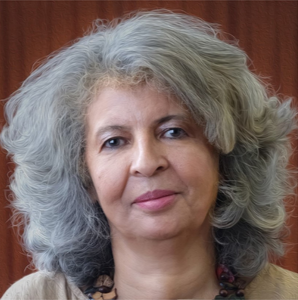
Penny Andrews – New York Law School
The Law and Society Association is proud to present the 2025 Ronald Pipkin Service Award to Professor Penelope Andrews, in recognition of her extraordinary and sustained service to the Association and to the broader sociolegal community.
A distinguished member of LSA for over 25 years, Professor Andrews has contributed immensely to the intellectual and institutional life of the Association. Her leadership has strengthened LSA’s global presence, supported new generations of scholars, and fostered a more inclusive and vibrant community. Her long-standing commitment to service has helped shape the organization’s growth and evolution.
Professor Andrews served as President of LSA from 2019 to 2021, guiding the Association through the unprecedented challenges of the COVID-19 pandemic. Her steady and compassionate leadership during this time ensured that the Association remained connected, responsive, and forward-looking. She worked closely with members, staff, and students to sustain programming and deepen the Association’s international engagement, with a particular focus on expanding participation from the Global South.
Her LSA service extends well beyond her presidency. Among her many leadership roles, Professor Andrews served as Co-Chair of the 2014 Program Committee for LSA’s 50th Anniversary Meeting, a pivotal event in the Association’s history. She also served as an LSA Trustee from 2011 to 2014, Co-Chaired the International Activities Committee, and Chaired the Ad Hoc African Renaissance Committee. In addition, she has contributed meaningfully as a member of several other key committees, including the Diversity Committee, the Nominations Committee, and the Program Committee. Her sustained and enthusiastic involvement in so many areas of the Association’s work reflects her deep dedication to LSA’s mission.
Professor Andrews has also supported the Association’s intellectual community through mentorship, collaboration, and public engagement. She co-founded and hosted the South African Reading Group in New York City for nearly three decades, creating a unique space for interdisciplinary dialogue among scholars, practitioners, and students. She has helped organize scholarly events across the U.S., Canada, and South Africa, always centering equity, access, and intellectual rigor.
Her contributions to LSA reflect a broader professional career marked by leadership and public service. Professor Andrews was the first woman to serve as Dean of Albany Law School and the first Black Dean of the University of Cape Town Faculty of Law. She currently teaches at New York Law School, where she co-directs the Racial Justice Project. Her scholarship spans constitutional law, gender and racial justice, human rights, and legal education. She has also served as an acting judge in South Africa and as a judicial trainer across the continent.
Through all of her roles—in the academy, the profession, and especially within LSA—Professor Andrews has consistently demonstrated vision, generosity, and commitment to community. Her leadership has helped make the Association more inclusive, more international, and more attuned to the evolving challenges of sociolegal scholarship.
In every facet of her involvement, Professor Penelope Andrews exemplifies the spirit of the Ronald Pipkin Service Award. We are honored to recognize her remarkable legacy of service and extend our deepest gratitude for all she has done for the Law and Society Association.
Past Winners
Year
Individual(s)
Affiliation
Nominations Require:
- Nominees must be current members of the Law and Society Association, however, nominators are not required to be members.
- A letter of support describing the nominee’s demonstrated, sustained and extraordinary service to the Association.
- 1 or 2 additional letters of support will be accepted, but are not required.
All supporting documents must be submitted in English and be in .DOC, .RTF, or .PDF format.
AWARD
Legacy Award
The LSA Legacy Award honors people whose contributions significantly helped to develop the Association through sustained commitment to the Association’s mission and legacy, extensive service, or scholarly publications that made a lasting contribution to the Association.
Current membership in the Association is not necessary.
Past Winners
YEAR
INDIVIDUAL(S)
2021
Rosann Greenspan
Mari Matsuda
Louise Trubek
Charles Lawrence
Setsuo Miyazawa
2020
Carroll Seron
Keith Hawkins
Malcolm M. Feeley
Bryant Garth
David B. Wilkins
Neil Vidmar
2019
Richard L. Abel
Kitty Calavita
David Engel
William Felstiner
Lawrence Friedman
Marc Galanter
Joel Handler
Robert A. Kagan
Samuel Krislov
Herbert Kritzer
Jack Ladinsky
Richard Lempert
Felice Levine
Laura Nader
Stewart Macaulay
Lynn Mather
Frank Munger
Doris Marie Provine
Jerome H. Skolnick
Joyce Sterling
David M. Trubek
Nominations Require:
- A nomination letter signed by at least 2 LSA members
- OPTIONAL: other supporting materials
All supporting documents must be submitted in English and be in .DOC, .RTF, or .PDF format.

